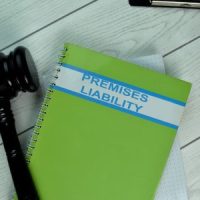Finding My Classification Under Florida Premises Liability Law

In Florida premises liability law, there are three different categories of people who might enter a business or visit property. Which group a person is classified into depends on their purpose for visiting the premises – but sometimes it can be difficult to classify a person with the information one has, or one can change from group to group, depending on the facts of the situation. If you have been injured on someone else’s premises and were designated a licensee, it is crucial to know whether that classification is accurate – if not, you may be denied recovery that you deserve.
Owed A Duty Of Care
Premises liability is the area of law that governs injuries or accidents on someone else’s property. If you are injured in your own home, more often than not there is no one else to blame but yourself. However, if you are injured in someone else’s business or home, or on their land, the owner may be liable for your injuries because owners are presumed to owe a duty of care toward everyone who is on their land at any given moment.
The three categories of visitors are invitees, licensees, and trespassers. While the definition of a trespasser is fairly self-explanatory, the other two are more complex. Invitees are people specifically invited onto someone’s premises, and can be of a public or business nature – for example, a visitor to a museum or a customer at a store. Licensees are those who visit premises solely for their own reasons – the most common example is a door-to-door salesman, or a child retrieving a ball from another person’s yard. However, licensees can sometimes become invitees, or they can become trespassers. The other classifications are not necessarily so fluid.
… But That Duty Can Change
The reason that someone’s classification in a premises liability case matters is because the duty of care owed to each group is different. For example, a landowner owes very little duty to a trespasser; they must merely refrain from causing them “willful and wanton injury.” However, once a trespasser becomes known to the owner, they become a licensee – and a licensee is owed not only the duty to refrain from willfully injuring them, but also the duty to warn them of any potential dangers that are not readily apparent to the average person.
While trespassers can become licensees, they cannot usually become invitees in one trip, though they may return later as an invitee. Conversely, an invitee can become a licensee or a trespasser if they overstay their welcome. For example, a paying customer to an amusement park is an invitee – but if they remain on the premises after the park closes, they are a trespasser, and only owed a duty to refrain from injury. If you have been injured on someone else’s land, make certain that you are aware of your classification so that you can fully comprehend the duty of care you were owed.
Contact A Tampa Premises Liability Attorney
If you are injured, your first focus should be on recovering – but if your injury happened because of someone else’s abrogation of their duty, you have the right to seek compensation. A Tampa premises liability attorney from the Rinaldo Law Group can help to clarify any questions you may have, and to guide you through the legal process. Call our offices today, or visit our website, for a free consultation.
Resource:
courtlistener.com/opinion/1696357/lukancich-v-city-of-tampa/
